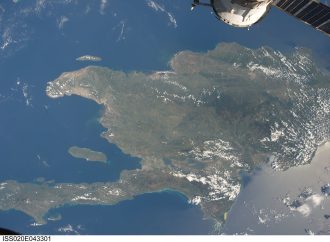The biggest crisis in relations between Russia and the West since Russian aggression in Crimea and Ukraine is now in full force. The enormity of the action that led to this crisis — the poisoning of a former Russian spy in the middle of a British city using a military grade nerve agent developed secretly
The biggest crisis in relations between Russia and the West since Russian aggression in Crimea and Ukraine is now in full force. The enormity of the action that led to this crisis — the poisoning of a former Russian spy in the middle of a British city using a military grade nerve agent developed secretly by Russia — is still hard to grasp. The enormity of the crisis itself is hard to predict, but its early stages are ominous.
On March 12, British Prime Minister Theresa May made a statement in Parliament that should have sent shock waves around the world. She indicated that the British investigation into the poisoning of Sergei Skripal and his daughter had determined that a nerve agent from the class known as Novichok had been used. The Novichok agents were developed secretly by a Russian state laboratory and only exposed to the world through the actions of a dissident Russian scientist involved in their development. They are the most lethal nerve agents in existence. In military terms, they are known as an area-denial weapon, which probably needs no definition.
Ms. May demanded an explanation from Russia and gave a deadline of Wednesday midnight.
That deadline passed, met only by a series of Russian denunciations and media venting of a conspiracy theory that it was all the work of British intelligence in the first place.
Ms. May told Parliament that there was no alternative conclusion to be drawn except that the Skripal poisoning represented an “unlawful use of force by the Russian state against the United Kingdom.” In plain language, an act of war.
Now, the British Prime Minister has begun to put in place a series of retaliatory measures. They are designed to cut down the Russian espionage machine in Britain (expelling 23 Russian spies), tighten British security, increase the range of sanctions that can be employed against Russia and cut off high-level contacts between Britain and Russia.
Britain is, of course, looking for international support to back action against Russia. The British government may have taken some comfort from the condemnation of the attack from U.S. Secretary of State Rex Tillerson, issued just before he was sacked by President Donald Trump. How far Britain’s European partners will go in backing Britain with action, particularly on harsher sanctions against Russia, remains to be seen. How far the Trump administration is prepared to go to confront Russia is a complete unknown, especially now that Mr. Trump has installed a close political ally “with a similar mindset” — former CIA Director Mike Pompeo — in the State Department.
Britain may find itself on its own in this struggle with Russia, with only the rhetorical support of its allies. Canada, for its part, has been laggardly in its response. Ten days into the crisis, Foreign Minister Chrystia Freeland issued the Canadian government’s first (and very brief) official statement condemning the attack and offering its “complete support” to Britain.
Ms. May has warned that there may be more to come. She stated that Britain would deploy a “range of tools” from its national security powers and that some measures to be taken “cannot be shared for reasons of national security.”
These dark hints have led to speculation that Britain might engage in a retaliatory cyberattack against Russia. While Britain has deployed offensive cybercapabilities against the Islamic State in Syria and Iraq, their use by a major Western power against Russia would represent an unprecedented escalation and would no doubt result in a further cycle of stepped up Russian cyberaggression against the West.
The world is on the edge of something momentous here. This is not just a spy story with Cold War trappings. It is not just something that happened to a former Russian spy (and his daughter, and a police sergeant). It bears the ominous hallmarks of the fracturing of a rules-based international order: The first use of a military nerve agent against a Western power since the Second World War; the first act of state aggression by Russia directly against a Western power since the end of the Cold War; and it is a potential spark for a spiral into unrestrained cyberattacks. To make matters worse, this is all taking place amid an unsettling isolationist moment in U.S. global policy.
This article was first published by the Globe and Mail on 14 March 2018.









